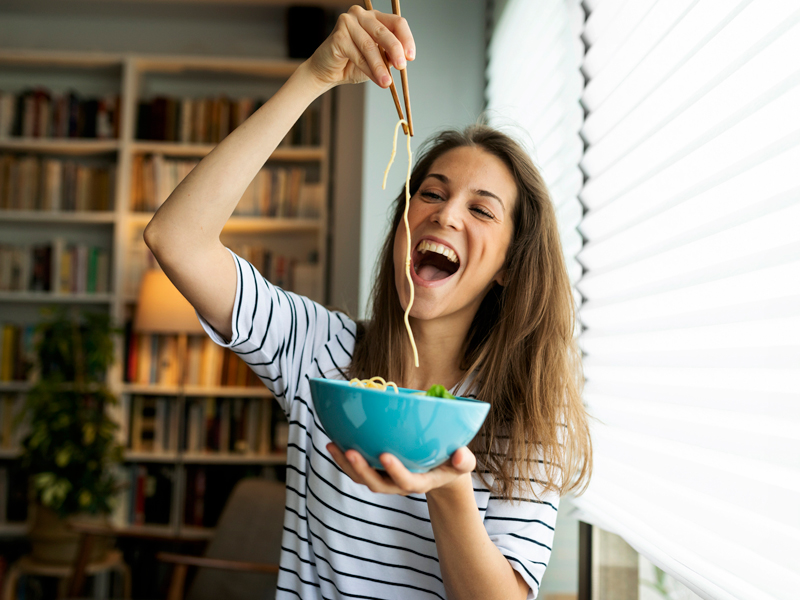5 common wellness myths busted for a healthier, happier you
Convinced no good can come of eating carbs or skipping breakfast? Experts explain why you can happily side-step these – and other – popular misconceptions.
There’s plenty of information out there that leads us to believe that in order to be healthy, happy humans, our days must be structured around rigid exercise regimens and endless bowls of salad.
The good news, according to our experts, is that sometimes a good story can get in the way of the truth.
Here are some commonly held beliefs around wellness — and the reasons why you can ignore these myths.
Myth: Carbs are bad for you
Tempted to eat that bowl of spaghetti? The bigger sin here would be to look away, sports nutritionist Alex Thomas says.
“I can’t tell you how many marketing campaigns have come out over the years claiming that low-carb diets are effective and, sadly, this has led to a big move towards ‘carbophobia’,” Alex, of the Sports Nutrition Association, explains.
- Good carbs: How many and which carbohydrates should you eat?
Myth: To lose weight, you must exercise
Personal trainer Ricardo Riskalla says he believes dieting, rather than exercise, is the most effective way to shed extra kilos.
“It’s simple: because portion control and the number of meals are what matter, never eat until you are full and never eat more than three meals a day,” Ricardo, of Ricardo Riskalla Training, says.
If you’re going to exercise, forget running until you’re exhausted but aim instead for a less intensive activity, he adds.
“If you’re unsure what kind of exercise is best for you, try walking for one hour every day,” Ricardo suggests.
Myth: Avoid packaged foods
If you’re hoping Alex is going to encourage you to hoe into that bag of salt and vinegar chips, stop right there.
While not every food that comes in a packet is healthy, there are some packaged foods you can feel good about eating, Alex says.
For example, if you were to compare Australian snap frozen berries with fresh supermarket fruit, the frozen berries are likely to be extremely fresh and less likely to have pesticide residue on them.
“Of course, avoid highly processed foods, but remember that not all food in a packet is bad,” Alex adds.
- Ultra-processed foods: What to avoid and what to eat instead
Myth: Doing crunches gives you a six-pack
If you’ve always insisted that sit-ups and crunches are nobody’s friend, Ricardo is going to agree with you.
“Contrary to popular belief, six-packs have more to do with the percentage of body fat you have rather than how many crunches you’re doing,” Ricardo says.
Ricardo advises you’ll be far more successful in achieving a “ripped look” if you focus on eating unprocessed foods, drinking plenty of filtered water and avoiding salt (since salt creates fluid retention).
Myth: Breakfast is the most important meal of the day
Convinced yourself that the only way to get that metabolism firing is by starting your day with a full plate of eggs, avocado and sourdough?
According to Alex, it’s fake news.
“Different people like to eat at different times — eating later in the day may help you achieve a calorie deficit, which can be a good thing,” Alex says.
“However, if you get too hungry and then binge eat, skipping breakfast probably isn’t right for you.”
The most sensible approach is to do whatever gives you the most energy and, if you’re looking to lose weight, allows you to be in a calorie deficit.
Written by Dilvin Yasa.





